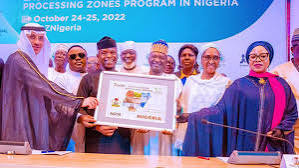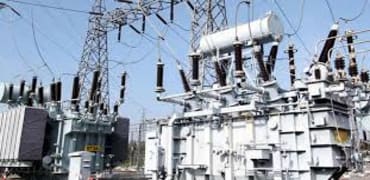Nigeria Seeks Billions for Green Energy—Islamic Bank Steps In!
Nigeria Seeks Billions for Green Energy—Islamic Bank Steps In!"
By Achimi Muktar
Nigeria is making bold moves in the renewable energy space, and the latest talks with the Islamic Development Bank (ISDB) could unlock billions in climate financing. The Federal Government, represented by the Director General of the Energy Commission of Nigeria (ECN), Dr. Mustapha Abdullahi, and the Minister of Innovation, Science, and Technology, Chief Geoffrey Uche Nnaji, engaged in high-level discussions with the ISDB delegation to explore funding for solar power, clean cooking, methanol plants, and green hydrogen.
But what’s really at stake? And how soon could Nigerians see the impact of these projects?
At the heart of the discussions were several ambitious projects designed to diversify Nigeria’s energy sources while tackling climate change. The key initiatives include:
✅ Clean Cooking Policy – A shift to modern cooking solutions to reduce reliance on firewood and charcoal, improving public health.
✅ Solar Photovoltaic (PV) Plants – Expanding solar energy generation to power communities and businesses.
✅ Methanol Plants – Establishing facilities to produce cleaner fuels.
✅ Green Hydrogen Plants – Pioneering the use of hydrogen as an alternative energy source.
Dr. Abdullahi stressed that these capital-intensive projects would require a mix of bonds, grants, and equity investments to move forward. “Innovative funding mechanisms are essential if we are to achieve a sustainable energy transition,” he said.
The Islamic Development Bank has shown strong interest in funding Nigeria’s green energy agenda. Hammad Hundai, head of the ISDB delegation, assured Nigerian officials that the Bank would explore various financial pathways to support these projects.
Minister Nnaji welcomed the ISDB’s backing, particularly for the clean cooking initiative, which he said could improve the lives of millions of Nigerians, especially women and children. “We must commercialize clean cooking solutions swiftly to make them widely accessible,” he added.
This latest funding push aligns with President Bola Tinubu’s commitment to sustainable energy. Speaking at the 2025 Abu Dhabi Sustainability Week (ADSW), Tinubu highlighted how Nigeria was the first African nation to fund green projects using Sovereign Green Bonds.
“Nigeria remains committed to creating an enabling environment for businesses to thrive in green energy investments,” Tinubu said, inviting international investors to partner with the country.
Since launching its first-ever Sovereign Green Bond in 2017, Nigeria has raised billions to finance eco-friendly projects, setting the pace for sustainable energy investment in Africa.
With the ISDB showing keen interest and Nigeria already laying the groundwork, the next step will be securing concrete financial commitments and launching these projects. If successful, millions of Nigerians could gain access to cleaner, cheaper, and more sustainable energy in the coming years.
Will this be the turning point for Nigeria’s green energy future? Time will tell, but the government’s push for renewable energy financing is stronger than ever.


















